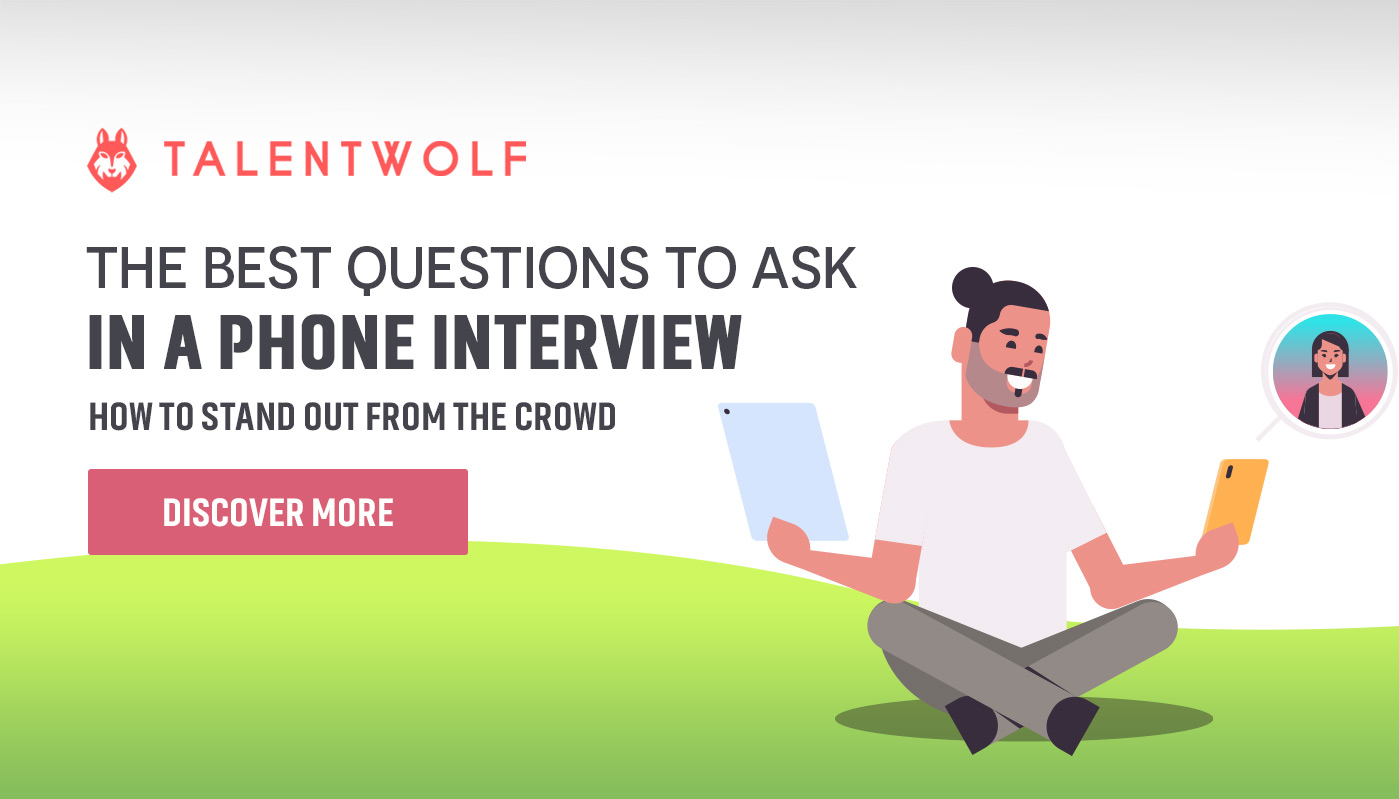According to a recent study, up to 70% of workers are actively looking for a new job or considering it. Plus, there is always a steady stream of recent graduates who are looking for their first job. In other words, there's quite a bit of competition out there!
A new corporate job opening attracts roughly 250 resumes. The first step is to make sure that your resume is one of the few that will beat the bots and make it into the hands of a hiring manager.
The second step is to know what questions to ask in a phone interview. We tend to approach job interviews from the perspective that we are only there to answer questions, rather than ask some of our own. However, the right questions can show how interested you are in the job and the level of professionalism you would bring to the company.
Read on for our guide to the right list of questions to ask in a phone interview that will make you stand out from the crowd!
Questions to Ask in a Phone Interview
Chances are, your phone interview will start with a series of questions that you will need to answer. For example, the interviewer may ask, "How would you describe your work ethic?" and, "What has been one of your biggest challenges and how did you overcome it?"
It's important to prepare for questions such as these. It's equally important to prepare for what will likely be the final question: "Do you have any questions for me?"
We've got a few suggestions that will help you get the information you need and wow your interviewer!
1. What would my day-to-day responsibilities look like?
Job listings are often vague, even if they include a list of expectations and responsibilities. For example, if a listing says, "Occasional project management," you're going to want more information than that. How often is occasional and what kind of projects need managing?
While this question reveals a deeper interest in the position, it's truly an important one to ask for your own benefit. Remember that most jobs require at least 40 hours of your time per week and ideally, you'll stay there for at least a few years. It's good to know what you'll be doing with such a substantial amount of your time!
2. What are the company's values?
Business experts often note that company culture is an important part of employee retention. Why? Company culture affects your experience at work, the role you play, and the values you uphold.
Asking about a company's values is a good way to tap into their culture and find out if it's a good fit. Enquiring about the company's values also opens the door to sharing your own values, giving you another opportunity to show yourself off as an asset.
3. How does this company measure success?
Companies often use the key performance indicator (KPI) strategy to measure their organizational success. It is important to know what a company's KPI's are to get a better sense of what will be expected of you. For example, companies that rely on sales may look at the number of sales you successfully made each quarter.
In addition to asking how they measure success, you can also ask them how often they do so and how they deliver feedback. Emphasize that you are always eager to grow in your position and make improvements. Indicate that you always welcome constructive criticism!
4. Are there opportunities for growth or upward mobility?
For some applicants, the answer to this question could be a dealbreaker. If the interviewer indicates that there are few or no opportunities for growth, ask yourself if you are comfortable with this. Do you want to work for a company that has no intention of promoting you, no matter how long you stay?
If the answer is yes, consider asking how those opportunities come about. What are some of the signs that an employee is ready for more responsibilities? How often do people get promoted from within as opposed to filling those positions from outside of the company?
5. Who would you say is your biggest competition?
Asking about competition creates an opportunity for you to show off your industry knowledge. You may even preface this question with what you've gathered from your own research.
For example, you could say, "It seems to me that Company X might be your biggest competition. Is that the case?"
This also creates an opportunity for you to prove that you are an asset. If appropriate, suggest what you think the company is doing right to stay ahead of their competition or make suggestions that would help them to improve.
6. How did the last person who held this position handle the job? What did they go on to do?
Note that not all interviewers will want to go into great detail about previous employees. If there is some resistance to this question, feel free to move on.
However, it can be useful for you to know why the person who held this position before you left. Were they promoted or given a better job opportunity elsewhere? Alternatively, were they let go because they weren't meeting expectations?
Knowing where the last employee went right and wrong can give you insight into what your interviewer is hoping to see from you.
7. Who would I be working with? Who would I be working under?
If you get a second interview, it may be with a new interviewer. It may even be with a higher-level manager.
Inquiring about who you'd be working with and for will give you a better sense of the company's dynamics. If the interviewer provides you with names and titles, write them down. That way, you'll be prepared with a bit of insider knowledge when that second interview comes around!
8. What qualities do you look for in a candidate?
Keep in mind that when you ask questions like this one, the goal is not to falsify information about yourself that will make you appear like a better candidate. The goal is to see if the company is a good fit for you.
As the interviewer lists ideal attributes, imagine yourself fulfilling those roles. Some of them may not feel natural to you in this moment but it's important to be honest with yourself. Could you grow into those roles?
For example, imagine that you are a typically quiet person and the interviewer says they are looking for someone who is a confident speaker and socially inclined. Though it is not typical of your behavior, would you be comfortable in a job that requires public speaking and meeting tons of new people? If not, this may not be the right fit.
9. Are there any weaknesses in my resume that concern you?
Let's face it. No one has a perfect resume. If you worked with a recruiter to find this placement, you're certainly a good fit but that doesn't mean the interviewer has no qualms whatsoever.
Asking the interviewer for feedback on your resume is a good way to clear up any confusion. For example, they may have questions about a certain job title you've listed. They may want to know more about a certain position or project that you've worked on in the past.
It may seem odd to point to your own weaknesses but if you handle it well, it could work out in your favor. Just be prepared to answer difficult questions or address the interviewer's concerns with honesty and integrity.
10. Are there any more questions I could answer for you?
By this point in the interview, you've likely covered a lot of your interviewer's bases. However, there's always a chance that something slipped through the cracks and it could just be the information that lands you the job.
Giving the interviewer another opportunity to ask you more questions is a great way to end the interview on a high note. It shows that you're confident in your ability to answer any questions. It also shows that you're focused on the conversation and dedicated to proving that you are the best fit for the company.
11. What is the next step in the interview process?
Nothing is more agonizing than ending an hour-long phone interview with, "We'll be in touch." When? How?
Politely ask your interviewer what the next step is. This will prompt them to give you a clear timeframe as well as the additional hoops they will want you to jump through. You may even find out how many other candidates are still in the running!
Land Your Dream Job
Preparation is key when it comes to landing your dream job. Putting together a stellar resume is a great start. Knowing what questions to ask in a phone interview is a surefire way to keep your momentum going when you make it through the first round.
What about the in-between? How do you know where to apply after you perfect your resume?
At Talentwolf, we match job seekers with their ideal positions by working with some of the top recruiters in the business. Make an account today and let us guide you to your dream job!





